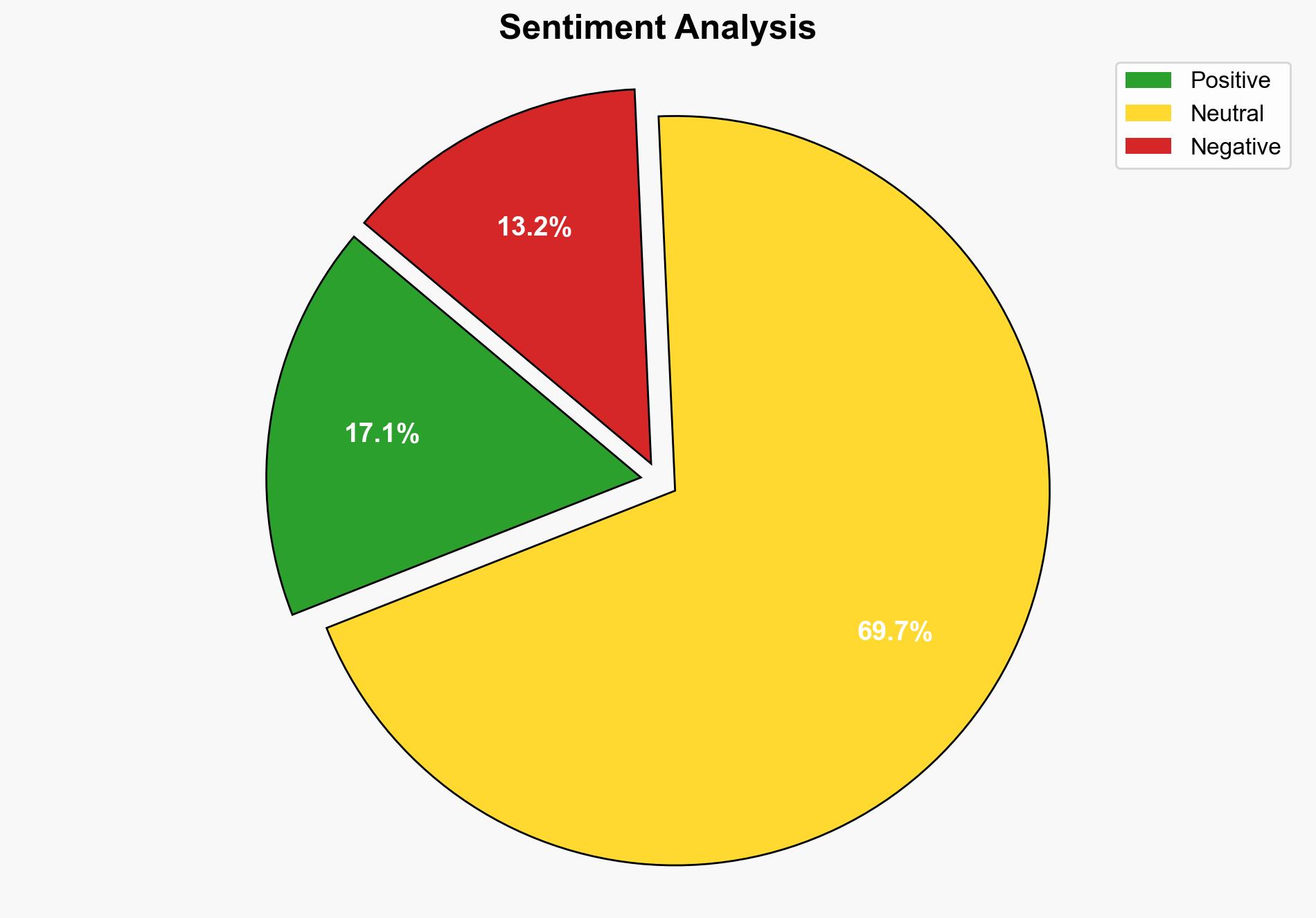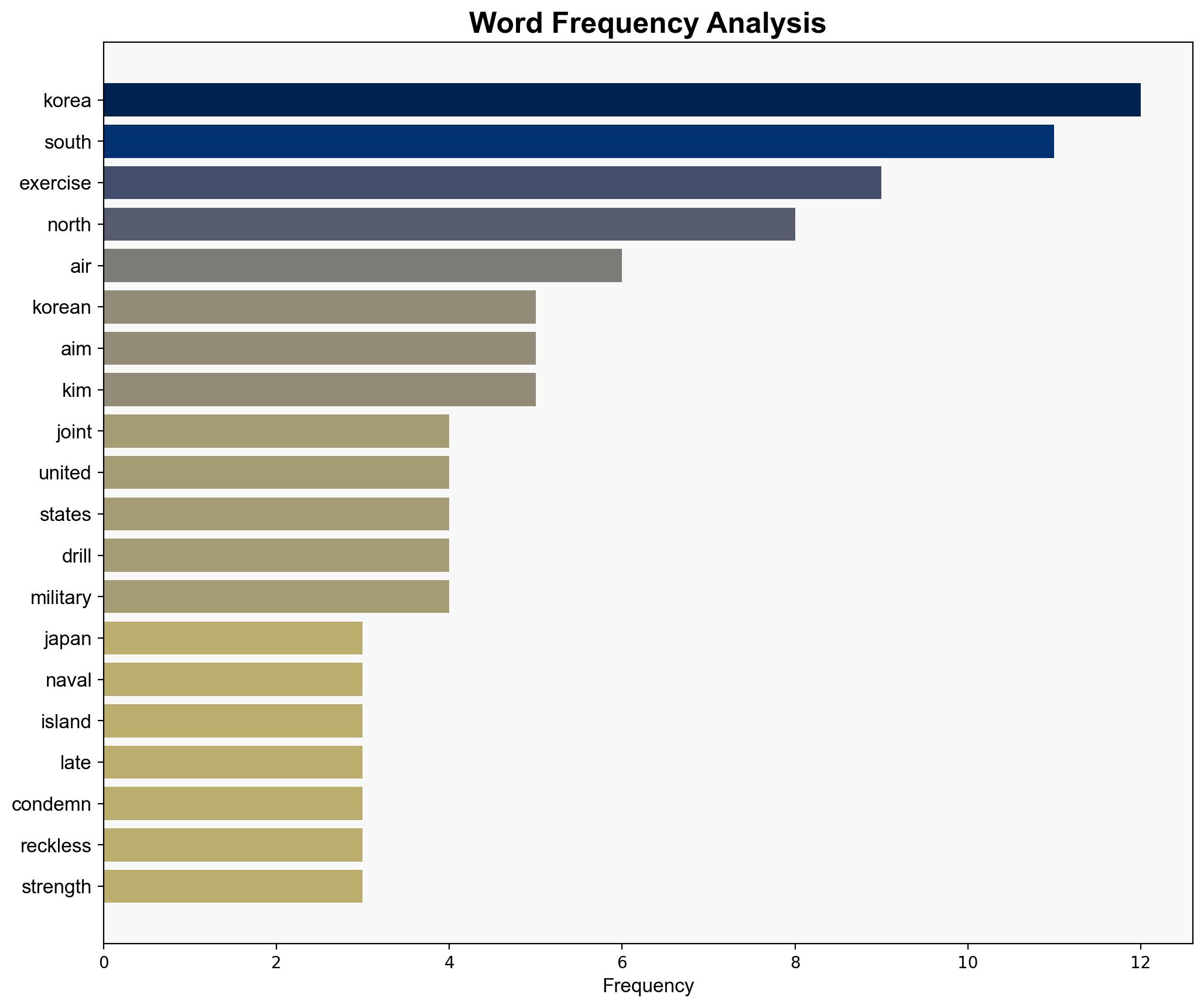US South Korea and Japan open joint air and naval exercise – ABC News
Published on: 2025-09-15
Intelligence Report: US South Korea and Japan open joint air and naval exercise – ABC News
1. BLUF (Bottom Line Up Front)
The joint military exercise by the US, South Korea, and Japan is a strategic demonstration of trilateral defense cooperation aimed at countering North Korea’s growing nuclear threat. The most supported hypothesis is that this exercise is primarily a deterrent against North Korea’s military advancements. Confidence level: Moderate. Recommended action: Continue diplomatic engagement with North Korea while reinforcing regional alliances.
2. Competing Hypotheses
Hypothesis 1: The exercise is a direct response to North Korea’s military provocations and is intended to deter further aggression by showcasing enhanced military capabilities and readiness.
Hypothesis 2: The exercise is primarily a strategic maneuver to strengthen trilateral alliances and prepare for broader regional security challenges, including potential conflicts involving China and Russia.
Using ACH 2.0, Hypothesis 1 is better supported due to the explicit focus on countering North Korea’s nuclear threat and the historical pattern of military exercises following North Korean provocations. Hypothesis 2 is plausible but less directly supported by the current intelligence.
3. Key Assumptions and Red Flags
Assumptions include the belief that North Korea will perceive the exercise as a deterrent rather than a provocation. There is a potential cognitive bias in underestimating North Korea’s capacity for unpredictable responses. Red flags include the lack of explicit mention of China’s reaction, which could be a significant factor in regional dynamics.
4. Implications and Strategic Risks
The exercise could escalate tensions with North Korea, potentially leading to military demonstrations or tests. There is also a risk of misinterpretation by China and Russia, which could view the exercise as a threat to their regional influence. Economically, increased military spending could strain national budgets, while cyber threats may rise as adversaries seek to disrupt communications and operations.
5. Recommendations and Outlook
- Engage in diplomatic channels with North Korea to clarify the defensive nature of the exercise and reduce the risk of escalation.
- Strengthen cybersecurity measures to protect against potential retaliatory cyberattacks.
- Scenario-based projections:
- Best Case: North Korea perceives the exercise as a deterrent and refrains from further provocations.
- Worst Case: North Korea conducts a significant military test, escalating regional tensions.
- Most Likely: North Korea issues strong rhetoric but limits actions to minor military demonstrations.
6. Key Individuals and Entities
Kim Yo Jong, Kim Jong Un, Xi Jinping, Vladimir Putin
7. Thematic Tags
national security threats, cybersecurity, counter-terrorism, regional focus





